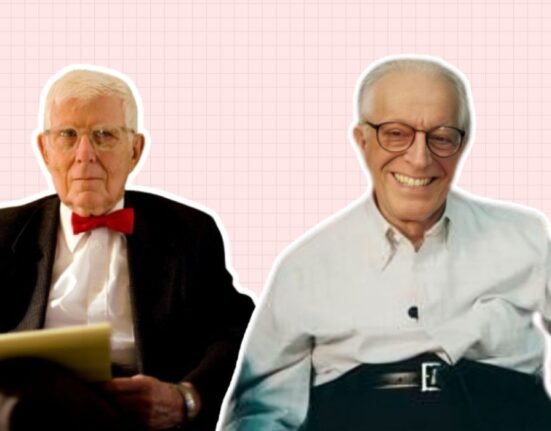Have you ever felt lost in the vast sea of emotions, unable to grasp the depth of your feelings, or at a loss because it feels like your world has been turned upside down and everything is beyond your control? This feeling is called grief, a natural and universal human experience. Grief remains to be one of the most complex emotions to navigate. While we all encounter grief at some point in our lives, it remains to be widely misunderstood.
When you’re a young adult, coping with grief can be confusing and challenging, especially when it comes at a time when we are still figuring out our identities and our life goals. As humans, it’s our fundamental nature to question and inquire about the essence of grief. Therefore, you might find yourself asking questions like What precisely is grief and how can it be explained? How can we comprehend this complex emotional state and how do we learn to cope with this effectively?
Whether you’ve just begun to struggle with loss and grief or you aim to have a better grasp and understanding of this intricate and profound human process, this article aims to bring you an answer to these questions.
What is Grief?
To put it simply, grief is an emotional and natural response to loss. It is not a single event but rather a process that occurs when something or someone you hold dearly is taken away. Grief is a reflection of what we love and therefore the weight of grief can be overwhelming. When grief strikes, it makes you feel a whirlwind of emotions, from rage, shock, and disbelief to guilt and profound sadness.
However intense your emotions are, these reactions are completely normal and this grief can affect every aspect of your life — physically, mentally, and socially. The more significant the loss, the more intense the grief.
Grief is often associated with dealing with the death of a loved one. While this is one of the most intense types of grief, the other causes of grief in young adults include:
- End of a relationship
- Parting ways with a friend
- The decline of one’s own physical well-being or the well-being of a loved one
- Illness or death of a pet
- When a dream or aspiration that is close to one’s heart remains unfulfilled.
- Loss of a loved one/bereavement
- Financial instability that disrupts the sense of security
- Academic Difficulties
- Subtle losses like moving away from home for education or changes like graduating
- from college and changing jobs.
Also Read: In the times of Death, Loss and Grief
The path and timetable of grief are unique for every individual. There’s no fixed duration for grief. Therefore misconceptions about the “right way” to grief or “more the grief the better,” complicate matters.
There are people who experience acute grief, a short-term phenomenon that might return unexpectedly at a later time. On the other hand, some also experience prolonged grief, also known as complicated grief. This type of grief can last for months and even years. Without assistance and support, this grief can cause an individual to isolate themselves and live in persistent loneliness.
Symptoms of Grief
Grief is a Rollercoaster of Emotions. It is also not a one-size-fits-all experience. Young adults often experience a wide range of emotions while grieving. These include :
- Sadness: This is one of the most recognized emotions in grief. It’s an overwhelming feeling that can make you feel helpless.
- Anger: The anger can be directed at the situation or even the person or thing that was lost. This is a natural part of the grieving process.
- Fear and Anxiety: Grief can also be accompanied by uncertainty due to the changes. It can cause fear and anxiety about the future.
- Guilt: You might blame yourself for the things that were left unsaid or undone.
- Physical symptoms: Most often, we think that grief is an emotional process, and while that is partly true, it is also accompanied by nausea, weight fluctuations, aches, insomnia, fatigue, and lowered immunity.
Helpful Coping Strategies
The grieving process looks different for everybody. Some might experience anger and intense sadness while some might go numb. What’s important is that you accept your feelings and allow yourself to go through the process. The first steps that you can take to begin this journey are,
- Acknowledge and validate your loss and the pain it causes you.
- Embrace the wide range of emotions that grief causes.
- Accept that this journey is a personal and individual experience and that others might not understand how you feel.
- Reach out to people who care about you.
- Don’t disregard your physical well-being and foster emotional well-being.
- Learn the difference between grief and depression.
- Express your feelings in a creative way, such as implementing the use of a journal, or making a scrapbook to write down your feelings.
- Try to seek comfort by getting back into your routine and engaging in activities that bring you joy.
- Don’t let others tell you when it’s time to “move on” and get over your loss.
Seeking Support from Family and Friends
Even if you’re someone who is used to being independent and strong, turn to your friends and family during times of grief. Accept their presence and support and seek comfort in the quality time spent with them.
Sometimes, your friends and family might want to help but are unable to understand how to. You can let them know what you need, be it a companion to stay by your side and confide in or a supportive, listening ear. If you feel like you lack close in-person connections, it’s never too late to seek out and forge new ones!
You can also reach out to support groups. Trying to connect with people who have had similar losses can help you find solace and a comforting sense of belonging.
Accepting the Awkwardness
Grief can be a perplexing emotion for people who haven’t experienced a similar loss. Therefore, for them, consoling someone in grief can be uncomfortable. While they might struggle to find the right words and actions, their extension of support is a reflection of their genuine concern and care.
Seeking Professional Help
Grief can be overwhelming and this intense feeling can disrupt you to the point that it becomes difficult to function daily. In cases like these, seek professional help from a therapist or a grief counsellor.
It is one positive step forward in finding support and starting the healing process during difficult times.
Also Read: Understanding Grief Therapy And Its Interventions
Conclusion
Grief often causes an individual to retreat and without themselves from others. It’s crucial to understand that human connection is the key to recovery from grief. While a grieving person might want to hide and lock their emotions away and find openly discussing the emotions uncomfortable, expressing them remains essential.
This also doesn’t mean that grieving individual has to discuss their feelings around the people they trust every time. On the contrary, even just being around those who care about you and having a healthy support system can bring comfort and relief. The bottom line here is that one should avoid isolating themselves to deal with grief.
Coping with loss and the emotions accompanying it is a journey of patience, awareness, and self-compassion. While grieving can be a difficult process, with the correct support, it can lead to healing and acceptance.













Leave feedback about this